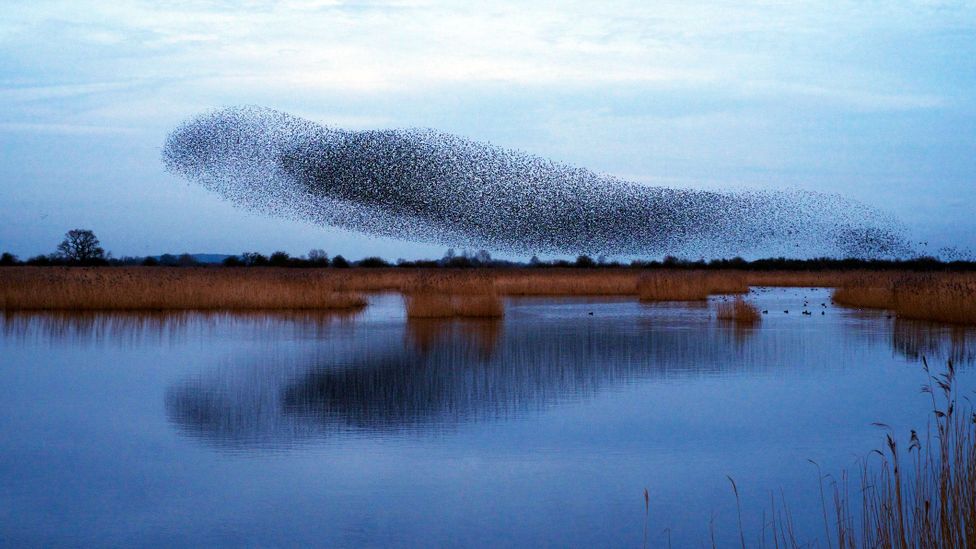“Generational amnesia: The memory loss that harms the planet”, BBC Future
By Richard Fisher, London, 24th June 2021
As each new generation inherits the world, vital knowledge is forgotten. In the latest in our Wise Words series, Richard Fisher explores the language that has emerged to describe that phenomenon.

Can a generation be forgetful? It’s certainly true that older generations can fail to remember what it was to be young. With age, there comes a predictable derision of youth that seems to afflict almost every demographic cohort over the age of 35 years or so.
“Generational trashing is actually eternal human behaviour,” wrote the novelist Douglas Coupland in an essay for The Guardian earlier this month. And he should know: he coined the term “Generation X”. Baby boomers, he recalls, once poured scorn on Gen-Xers like him, who themselves grew up to be sniffy about the avocado-and-toast eating habits of “snowflake” Millennials. And now it’s the turn of Generation Z, with their TikToks and identity politics, to be judged by their elders.
There’s actually a scientific term for this: the “kids these days” effect, which can be traced all the way back to the writing of the Ancient Greeks. “Since at least 624 BC, people have lamented the decline of the present generation of youth relative to earlier generations,” according to the psychologists who named the phenomenon. “The pervasiveness of complaints about ‘kids these days’ across millennia suggests that these criticisms are neither accurate nor due to the idiosyncrasies of a particular culture or time – but rather represent a pervasive illusion of humanity.”
One reason, the researchers say, is that people tend to forget that they themselves have changed over time, and so assume that the maturity, attitudes and behaviours of the young are also fixed.
However, that’s not the only kind of forgetfulness that happens as the generations pass. There’s another type that is less obvious, called “generational amnesia”, which has profound effects on the way that we see the world. And unfortunately, all of us come to suffer from it no matter how young or old we are.
More from the “Wise Words” series:
- Social cryptomnesia: How societies steal ideas
- The unseen ‘slow violence’ that affects millions
- The subtle ways that ‘clicktivism’ shapes the world
Every generation is handed a world that has been shaped by their predecessors – and then seemingly forgets that fact. Consider how we think about technology. The current generation’s idea of technology means smartphones, cryptocurrencies or the internet, but it wasn’t always so: technology was once centred on pneumatics or steam, rather than silicon. One computer scientist once quipped that technology should be defined as “anything that was invented after you were born”.

Spot the technology in this picture: is it just the phone, or more than that? (Credit: Getty Images)
Some inventions are so ubiquitous that we’ve totally forgotten that they even aretechnologies. As the writer Douglas Adams once pointed out: “We no longer think of chairs as technology; we just think of them as chairs. But there was a time when we hadn’t worked out how many legs chairs should have, how tall they should be, and they would often ‘crash’ when we tried to use them.”
As a result, the average person today lives a life with advances and luxuries that even the most privileged generations of the past could only dream of. If Cleopatra or Elizabeth I were to time-travel to the present day, they would marvel at a world we take for granted, with its vaccines and antibiotics, and a flushing toilet and fridge in every home.
New generations also have a habit of collectively forgetting how positive social change comes about through the dogged activism of minorities once shunned, such as Emmeline Pankhurst and the suffragettes’ campaign for women’s right to vote. It wasn’t always the case that universal suffrage was seen as uncontroversially right, yet this fact is rarely remembered. (Read more: Social cryptomnesia: How societies steal ideas)
Some inventions are so ubiquitous that we’ve totally forgotten that they even are technologies
But if the most recent generation is forgetful about the positive steps and changes handed to them by their forebears, then so too can they fail to notice how those predecessors have damaged the world too.
One of the first times this particular type of generational amnesia was observed was back in the 1990s – to describe an effect afflicting researchers who studied fish.
One day, the fisheries scientist Daniel Pauly looked around at his contemporaries, and noticed something curious. Despite an objectively recorded long-term decline in certain fish populations, each generation of scientists seemed to be accepting the lower abundance and diversity they studied as their “baseline”. They did this despite stories that prior generations had experienced and observed ocean life quite differently. For example, Pauly recalled how the grandfather of a colleague had once expressed annoyance at how, in the 1920s, bluefin tuna would regularly get tangled in his nets in the North Sea – a region where the species is now largely absent.

‘Shifting baseline syndrome’ was first proposed to describe the invisible long-term decline of fisheries (Credit: Getty Images)
What this blindspot meant, Pauly argued in a short-but-influential paper, was that the scientists were failing to account fully for the slow creep of disappearing species, and each generation accepted the depleted ocean biodiversity they inherited as normal. He dubbed the effect “shifting baseline syndrome”.
Since then, the shifting baseline effect has been observed far more widely than the fisheries community – it takes place in any realm of society where a baseline creeps imperceptibly over generations.
A few years later, the psychologist Peter Kahn of the University of Washington described a similar effect in a completely different context: the black communities of Houston, Texas. He was curious about children’s perceptions of the quality of the environment they lived in. Through interviews, he found that they could easily describe what air pollution was, for instance, as well as highlighting other cities that were polluted – but simultaneously they failed to show much awareness that Houston had become one of the US’s most air polluted cities. They just accepted it as the way things were. “How could these kids not know it? One answer is that they were born in Houston, and most had never left it; and through living there they constructed their baseline for what they thought was a normal environment,” Kahn later wrote in a paper he co-authored with colleague Thea Weiss.
According to Kahn and Weiss, we all experience this environmental form of generational amnesia. It is not so much that individuals fail to recall the past they themselves have lived, it’s more that humanity collectively “forgets” the natural world as it once was, as the generations pass. “The problem is one of the most pressing psychological problems of our lifetime,” they write. “It is hard enough to solve problems, like deforestation, ocean acidification, and climate change; but at least most people recognise them as problems.”

The parents and grandparents of UK citizens were far more likely to see clouds of starlings when they were young (Credit: Getty Images)
Even the most familiar examples of nature, close to home, can be forgotten. Zoologist Lizzie Jones of Royal Holloway, London and colleagues recently interviewed people living in the UK about their perceptions and memories of 10 species of garden bird, both at the time of the survey and their recollection of when they were 18 years old. They found that younger people, who were closer to the age of 18, were less able to describe the true long-term ecological change that had happened among British bird populations. As Jones and colleagues pointed out, murmurations of starlings were once a common sight in the UK but their numbers in England alone declined by 87% between 1967 and 2015. Another example might be the “windscreen phenomenon“, which describes the observation by all but the youngest generations that fewer insects are splattered on their cars nowadays.
Is there any way to avoid such environmental generational amnesia? It might seem that it’s simply a matter of educating each new generation, but Kahn and Weiss propose that doesn’t necessarily mean the traditional teaching of the classroom. Instead, they call on older generations to foster what they call “interaction patterns“, a more experiential approach where children and young people are encouraged to meet nature wherever they can find it.
That doesn’t need to be the romanticised ideal of visiting a rare wild forest, or hiking into inaccessible wilderness – it could be as simple as walking along the edge of a body of water, identifying berries on a summer’s day, or even simply lying on the grass or earth. It doesn’t matter whether you live in a city or the countryside. “The solution we are putting forward is, in effect, ‘one small interaction with nature at a time’,” write Kahn and Weiss.
As each generation ages, it may be tempting to lament a lack of awareness among the “kids these days”, just as the previous generation did when we were young. But when it comes to ensuring that our best memories of the world are not forgotten, it seems at least some of that energy might be better spent passing forward experience, rather than passing judgement.
*Richard Fisher is a senior journalist for BBC Future.
Welcome to Wise Words, a BBC Future series that aims to boost the vocabulary we use to describe a rapidly evolving world. We’ll uncover lesser-known words and phrases that label previously hidden phenomena, guided by the belief that novel language can unlock novel understanding.